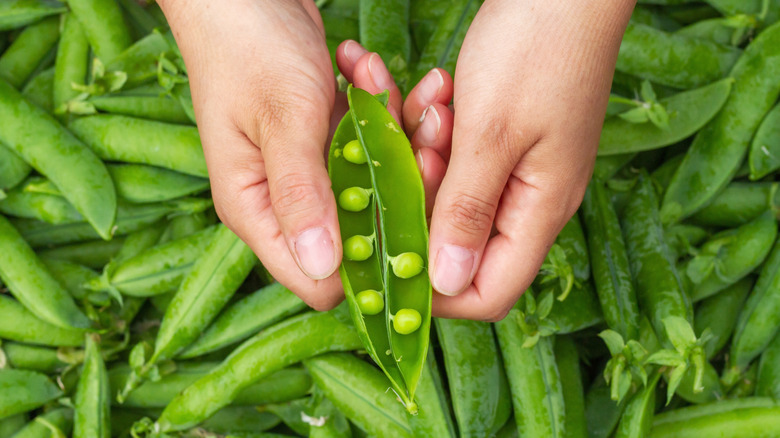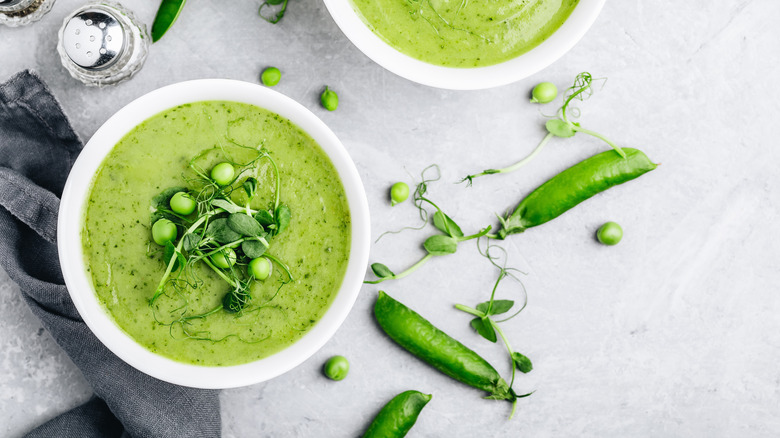When You Eat Peas, This Is What Happens To Your Body
Peas are a staple in many American households because they're tasty, affordable, and come in fresh, frozen, and canned varieties. Although these green orbs are technically legumes and not vegetables, they are packed with health benefits. According to Healthline, peas contain "just about every vitamin and mineral you need" including vitamins A, K, and C, thiamine, folate, manganese, iron, and phosphorus.
Peas are significantly high in protein as well. Many plant-based protein powders and drinks are made from pea protein. A single cup of peas contains eight grams of protein. Protein is necessary for many bodily functions and it helps to keep us full after eating. This can prevent overeating, which may lead to weight gain. Whether you're following a plant-based diet or not, peas are a great protein source to add to your diet. These legumes also contain many polyphenol antioxidants, which prevent cell damage caused by aging and environmental factors.
Other nutritional benefits of peas
Peas are also an excellent source of fiber. According to Eat This, Not That!, eating peas may improve your digestion. "One cup of peas contains 7 grams of fiber, which is 23% of the recommended 30 grams to have daily," said registered dietitian Abby Cannon, JD, RD, CDN. "[Fiber] helps us feel full, improves digestion and elimination, and soluble fiber even helps lower LDL cholesterol." Along with regulating digestion, peas can improve your blood sugar.
Peas can be eaten in a variety of ways and are easy to incorporate into your diet. Frozen peas can be added to soups, sauces, and pasta dishes for additional texture and nutrients (via Kitchn). They cook very quickly and don't need any special preparation methods. Peas can be eaten on their own with a little butter or salt for flavor. They can also be mashed and stirred into guacamole, chicken salad, or other spreads for an added boost of protein and fiber.


